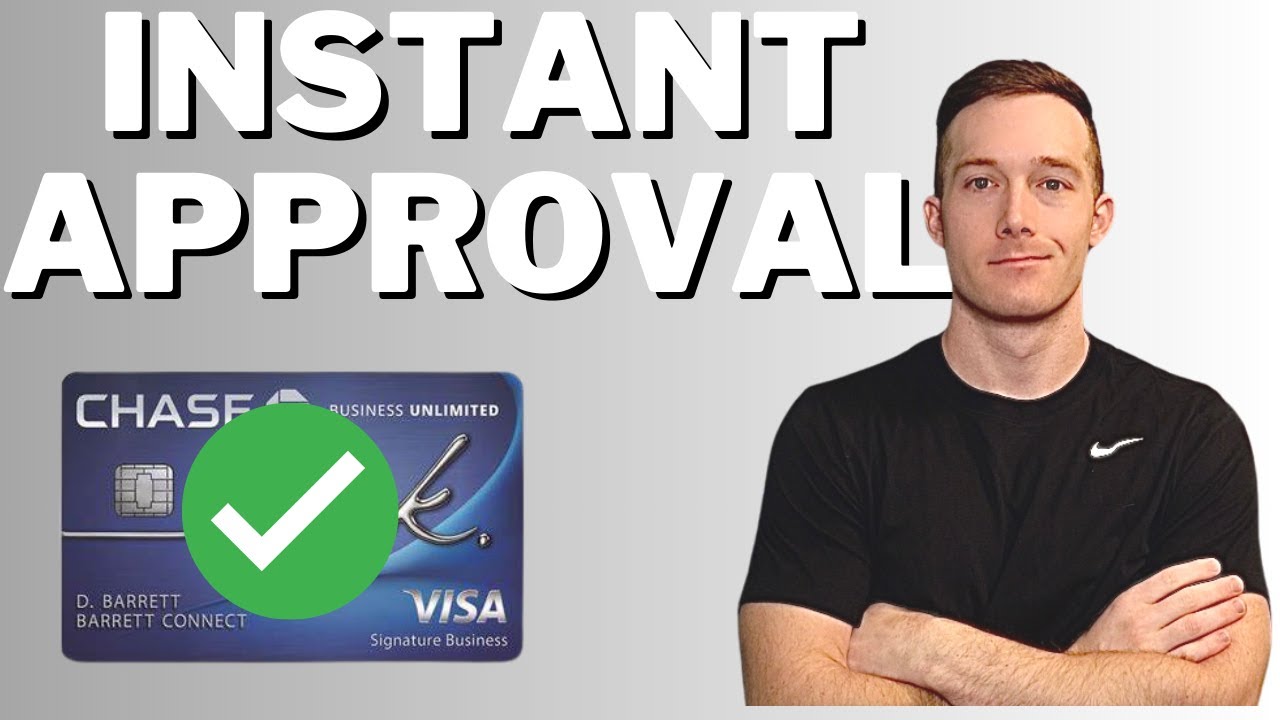How to get a credit card for a business is a question many entrepreneurs ask. A business credit card can be a powerful tool for managing expenses, earning rewards, and building credit. Unlike personal credit cards, business credit cards are specifically designed for the needs of companies, offering features that can help streamline operations and boost profitability.
From understanding eligibility requirements and choosing the right card to applying for and managing your account responsibly, this comprehensive guide will walk you through the process of obtaining a business credit card and maximizing its benefits. We’ll also discuss how to build a strong business credit history and the importance of responsible use.
Understanding Business Credit Cards
Business credit cards are financial tools designed to help businesses manage their expenses and build credit. They offer various benefits that can be advantageous for entrepreneurs and company owners.
Benefits of Business Credit Cards
Business credit cards provide several benefits that can enhance a company’s financial management and operations.
- Rewards Programs: Many business credit cards offer rewards programs that allow businesses to earn points, miles, or cash back on their purchases. These rewards can be redeemed for travel, merchandise, gift cards, or statement credits, helping businesses save money or gain valuable perks. For example, a business card offering 2% cash back on all purchases can significantly reduce annual expenses.
- Travel Perks: Some business credit cards provide travel benefits such as airport lounge access, travel insurance, or priority boarding. These perks can be particularly valuable for businesses that frequently travel for work, making business trips more comfortable and convenient. For instance, a card offering complimentary airport lounge access can provide a comfortable and private space to work or relax before a flight.
- Purchase Protection: Business credit cards often include purchase protection, which covers items bought with the card against damage or theft. This can provide peace of mind and financial security for businesses, especially when dealing with expensive equipment or inventory. For example, if a business purchases a new laptop with a business credit card and it gets stolen, the purchase protection may cover the cost of replacing it.
- Employee Cards: Many business credit cards allow businesses to issue employee cards, which can help streamline expense management and track employee spending. This can be particularly helpful for businesses with multiple employees who travel or make frequent purchases. For instance, a business can issue employee cards with spending limits and track all transactions through a centralized online portal.
- Credit Building: Using a business credit card responsibly can help build a company’s credit score, which can be beneficial when applying for loans, leases, or other financing. A good credit score demonstrates financial responsibility and can lead to lower interest rates and better terms on future financing. For example, a business with a strong credit score may be able to secure a loan with a lower interest rate, saving money on financing costs.
Comparison with Personal Credit Cards
Business credit cards differ significantly from personal credit cards in their intended purpose and benefits.
- Separate Credit History: Business credit cards build a separate credit history from a personal credit card, allowing businesses to establish their own creditworthiness without affecting personal credit scores. This is important for businesses that want to maintain a strong personal credit score while building a strong business credit score.
- Higher Credit Limits: Business credit cards typically have higher credit limits than personal credit cards, providing businesses with more flexibility to manage expenses and make larger purchases. This can be especially beneficial for businesses with high operational costs or those that need to purchase expensive equipment or inventory.
- Additional Benefits: Business credit cards often offer benefits tailored specifically to businesses, such as expense tracking tools, employee cards, and purchase protection for business-related items. These benefits can help streamline business operations and enhance financial management.
Impact on Business Credit Score
Using a business credit card responsibly can positively impact a company’s credit score and financial standing.
- On-Time Payments: Making all payments on time and in full is crucial for building a good credit score. Late payments can negatively affect a business’s credit score, making it more difficult to secure financing in the future.
- Credit Utilization: Keeping credit utilization low is another important factor in maintaining a good credit score. Credit utilization refers to the amount of credit used compared to the total credit available. A high credit utilization ratio can indicate financial strain and negatively impact a business’s credit score.
- Credit Mix: Having a diverse mix of credit accounts, including business credit cards, can also positively impact a business’s credit score. This demonstrates responsible credit management and can lead to better credit terms and interest rates.
Eligibility Requirements

To qualify for a business credit card, you must meet certain eligibility requirements. These requirements ensure that you can manage the credit responsibly and make timely payments. The credit card issuer wants to be confident in your ability to repay the borrowed funds.
Business Credit History
A strong business credit history is crucial for obtaining a business credit card. It demonstrates your financial responsibility and ability to manage credit effectively. You can establish a strong business credit history by:
- Paying your business bills on time: This includes invoices, utilities, and rent.
- Maintaining a low business credit utilization ratio: This is the amount of credit you’re using compared to your total credit limit.
- Establishing business credit accounts: This can be done by obtaining a business loan, line of credit, or other forms of business credit.
Personal Credit Score
Your personal credit score can also play a role in your business credit card application. It’s a reflection of your individual creditworthiness and can influence the issuer’s decision. While your business credit history is the primary factor, a strong personal credit score can strengthen your application.
Other Eligibility Requirements
In addition to business credit history and personal credit score, here are other common eligibility requirements for business credit cards:
- Business Age: Most issuers prefer businesses that have been in operation for at least a year.
- Annual Revenue: Some issuers may have minimum revenue requirements, especially for cards with higher credit limits.
- Business Structure: The type of business you own can influence eligibility. For example, sole proprietorships, partnerships, LLCs, and corporations may have different requirements.
- Industry: Certain industries may be considered higher risk, and therefore, may have more stringent eligibility criteria.
Choosing the Right Business Credit Card
With so many business credit cards available, it can be overwhelming to find the right one for your business. Consider your spending habits, rewards preferences, and financial goals to determine which card best suits your needs.
Comparing Business Credit Cards
To make an informed decision, compare different business credit cards side-by-side. Here’s a table outlining key features:
| Card Name | Annual Fee | Interest Rate | Rewards Program | Spending Limit |
|---|---|---|---|---|
| Card A | $0 | 15.99% | 2x points on travel and dining | $10,000 |
| Card B | $95 | 13.99% | 1.5% cash back on all purchases | $25,000 |
| Card C | $450 | 11.99% | Points redeemable for airline miles | $50,000 |
Selecting the Best Card
To ensure you choose the best card for your business, consider these factors:
“Choosing the right credit card for your business is crucial for maximizing rewards and managing your finances effectively.”
- Spending Patterns: Analyze your typical monthly expenses. If you frequently travel or dine out, a card offering rewards in these categories could be beneficial.
- Rewards Preferences: Determine your desired rewards structure. Cash back, travel miles, or points redeemable for merchandise are common options.
- Interest Rates: Compare interest rates across cards and choose one with a competitive rate, especially if you anticipate carrying a balance.
- Annual Fees: Evaluate the annual fee against the potential rewards and benefits offered. Consider whether the fee outweighs the value you’ll receive.
- Spending Limits: Choose a card with a spending limit that aligns with your business’s needs and financial capacity.
Application Process

Applying for a business credit card involves a series of steps designed to evaluate your business’s creditworthiness and financial stability. By following these steps and providing accurate and complete information, you can increase your chances of approval.
Preparing Your Application
Before applying, gather all necessary documents and information. This will streamline the process and demonstrate your business’s legitimacy.
- Business Plan: A well-written business plan Artikels your company’s goals, strategies, and financial projections. It showcases your understanding of the market and your ability to manage finances. A compelling business plan should include:
- Executive Summary: A concise overview of your business, its mission, and key objectives.
- Company Description: Details about your business structure, products or services, target market, and competitive landscape.
- Management Team: Information about your team’s experience, expertise, and qualifications.
- Marketing Plan: Strategies for promoting your products or services and reaching your target audience.
- Financial Projections: Detailed income statements, balance sheets, and cash flow statements for the next three to five years.
- Business Licenses and Permits: Ensure you have all necessary licenses and permits to operate legally in your jurisdiction. This demonstrates compliance with local regulations.
- Tax Returns: Provide copies of your most recent tax returns, including Form 1040 (for sole proprietorships) or Form 1120 (for corporations). These documents reveal your business’s financial performance and tax compliance.
- Financial Statements: Include recent balance sheets, income statements, and cash flow statements. These documents provide a snapshot of your business’s financial health and ability to manage finances.
Documentation Requirements, How to get a credit card for a business
Credit card issuers require specific documentation to verify your identity, business legitimacy, and financial standing.
- Personal Identification: You’ll typically need to provide a driver’s license, passport, or other government-issued ID to verify your identity.
- Business Registration Documents: Depending on your business structure, this may include articles of incorporation, partnership agreements, or sole proprietorship registration documents.
- Bank Statements: Provide recent bank statements to demonstrate your business’s financial activity and cash flow.
- Credit History: Your personal credit history may be considered, especially for sole proprietorships or partnerships. A strong credit history indicates responsible financial management.
End of Discussion: How To Get A Credit Card For A Business

Securing a business credit card is an important step for any company looking to manage finances efficiently and build a strong financial foundation. By understanding the key features, eligibility requirements, and responsible usage practices, you can leverage the power of business credit cards to enhance your business operations and achieve greater financial success.
FAQ Corner
What is the difference between a business credit card and a personal credit card?
A business credit card is designed for business expenses, while a personal credit card is for personal use. Business credit cards often offer perks like rewards programs, travel benefits, and higher spending limits, while personal credit cards may have lower interest rates and more flexible repayment options.
How long does it take to get approved for a business credit card?
The approval process can vary depending on the issuer and your individual circumstances. It can take anywhere from a few days to several weeks.
Can I use my business credit card for personal expenses?
It’s generally recommended to use your business credit card only for business expenses. Using it for personal expenses could negatively impact your business credit score.
What are the best business credit cards for startups?
The best business credit card for a startup will depend on your specific needs and spending patterns. Look for cards with low annual fees, generous rewards programs, and flexible spending limits.
How can I improve my business credit score?
To improve your business credit score, make sure you pay your bills on time, keep your credit utilization low, and diversify your credit accounts. You can also consider using a business credit monitoring service to track your score and identify any potential issues.
 Norfolk Publications Publications ORG in Norfolk!
Norfolk Publications Publications ORG in Norfolk!

